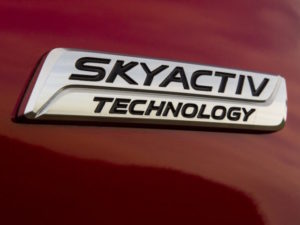Ultra-efficient Mazda petrol could beat diesels on fuel economy
Mazda is to launch a new petrol engine using compression ignition to bring similar or better fuel efficiency than its current diesels.

Mazda said its 2019 Skyactiv-X petrol could bring better fuel efficiency than the current Skyactiv-D diesel.
Due in 2019, the Skyactiv-X engine family will replace today’s Skyactiv-G units. It could make Mazda the first carmaker to use compression ignition on a production petrol car.
Petrol engines typically ignite fuel using a spark within the cylinder. Compression ignition works similarly to a diesel engine; fuel is heated to the point of combustion by being compressed within the cylinders.
Skyactiv-X uses compression and spark ignition, and the engine’s’ performance is boosted by a supercharger. Mazda is claiming a 10-30% increase in torque and 20-30% increase in engine efficiency over the current Skyactiv-G petrols, but said it also can also equal or exceed the current Skyactiv-D diesels for fuel efficiency.
Mazda said it will also start introducing electric vehicles from 2019, in line with its plans to reduce corporate average well-to-wheel carbon dioxide emissions to 50% of 2010 levels by 2030, and achieve a 90% reduction by 2050. To date, it has no electric vehicles in its range, though it does sell hybrids in Japan.
However, Mazda said its work on reducing CO2 emissions will continue efforts to improve internal combustion engines, adding that such units will “help power the majority of cars worldwide for many years to come and can therefore make the greatest contribution to reducing carbon dioxide emissions”.
It also added that it will team up its engine technology with electrification technologies – last month saw Volvo announce that it will start electric motors on its internal combustion engine line-up in the form of 48V mild hybrid technology, with the carmaker outlining that in the future no Volvo car will be without an electric motor.
The news comes days after Mazda announced a tie-up with Toyota on electric vehicles as well as connected cars and safety technology. The new partnership will also take in expanded product sharing and joint production in the US.
Other plans announced in Mazda’s ‘Sustainable Zoom-Zoom 2030’ vision include for autonomous driving technologies to be standard on all models by 2025 while its i-Activsense safety features – already standard in Japan – will start becoming standard in other markets starting in 2018.
For more of the latest industry news, click here.

















